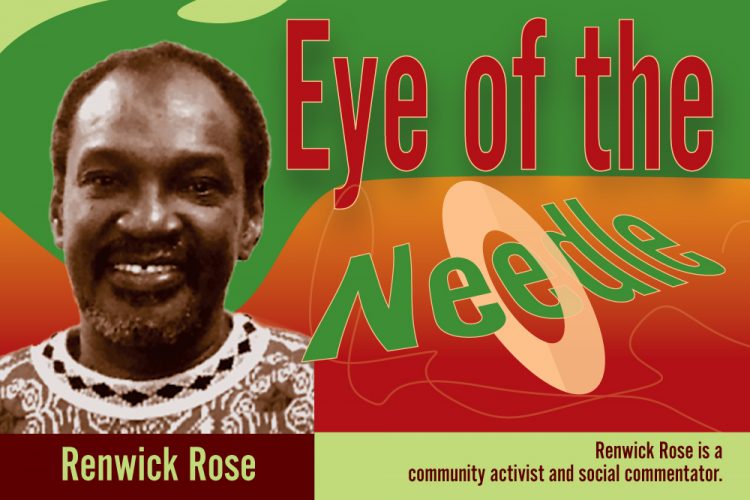Celebrating 30 years of fruitful partnership

THIS WEEKEND, the Government and people of St. Vincent and the Grenadines and their counterparts in Cuba jointly celebrate three decades of the establishment of diplomatic relations between both sister Caribbean nations. Unfortunately, Prime Minister Honourable Ralph E. Gonsalves and Cuban Ambassador,
His Excellency Jose Leyva Ventura will be in Cuba attending an important meeting of ALBA, the progressive grouping of Caribbean and Latin American states, so local celebrations will not be as high profile as expected. I understand from the SVG/ Cuba Friendship Society that bigger things are planned for July 26, one of the biggest occasions on the Cuban calendar.
The establishment of diplomatic relations between SVG and Cuba on May 27, 1992, was one of the most important foreign policy decisions taken by the government of this country and as we mark the occasion, it is vital that praise and credit is given where it is due.
First and foremost, therefore, we must applaud the bold action of the government led by the late Prime Minister, Sir James Mitchell with his then Foreign Minister, Herbert Young who signed the agreement, for taking this historic step, an indication of the placing of national interests above those of narrow political and ideological factors. It has proven to be a wise decision which our country will never regret, but also a statement of independence and non-alignment in our foreign policy. I do hope that in the celebrations this week and in July, this would not be forgotten.
The establishment of diplomatic relations did not come out of the blue for, on a people-to-people basis, Vincentians had long established relations with the Cuban people since Vincentian workers were among the Caribbean contingent to travel to Cuba early in the last century, some remaining and establishing families there.
The connections may have started there, but an affinity with Cuba remained in the Vincentian bosom. I remember for instance as a young teenager in the early sixties that the forerunners of what became the famous “Bridge Boys”, Grammar School graduates, taking the streets at Carnival portraying Fidelistas, Fidel Castro’s revolutionaries who had triumphed in 1959.
One of the Bridge Boys, outstanding historian and UWI lecturer, Dr Bernard Marshall even had the nickname of ‘Blas Roca”, a prominent communist in Castro’s government.
Yet for three decades, first in the pre-independence period when Britain controlled our foreign policy, and for more than 12 years after independence, Cuba remained a “bad word” on the lips of policy makers in SVG. Even on the eve of independence in 1979, following the eruption of the Soufriere volcano, the government of the day had initially refused the offer of Cuban assistance. A Cuban ship bringing much needed relief supplies remained anchored out to sea, and it took strong agitation by local friends of Cuba before the government relented and accepted the offer.
How did this local support for Cuba come about? First, in spite of a colonial law which forbade progressive literature, (a number of young men, me included, were arrested and charged under this draconian law), the thirst for knowledge led to the search for the truth, and a yearning to read “the other side”. I remember in particular, another member of the “Bridge Boys”, not a graduate like the more recognized ones, but a public servant, Price Control officer Dennis ‘Prick’ London always having a copy of the Cuban newspaper ‘Granma” to share with those of us eager to read and develop alternative visions.
So, in spite of the official hostility and risks of “breaking the law” progressive youth dared to try and find out as much about Cuba as they could.
Then came the revolutionary period of the seventies, the era of “Black Power” and socialist ideas. This time in the vanguard of the pro-Cuba movement was the late Comrade Caspar London, who along with fellow “Comrade” Hugh Ragguette kept the ideas of the Cuban Revolution in the forefront, including distributing socialist literature. By 1974 the strands of the progressive movement, “Black Power”, socialist and nationalist (pro-independence) had merged to form YULIMO and support from Cuba was put on a firmer footing.
By early 1976 there was already in motion a move to establish a Friendship Association with Cuba. It was launched on July 26 of that year. The heinous bombing of the Cubana airline off Barbados on October 6, 1976, gave impetus to the support for Cuba. At the same time, Dr Ralph Gonsalves, who had joined YULIMO and was then a lecturer at UWI Cave Hill campus, had established contact with the Cuban Embassy in Barbados and although state-to-state relations were not possible, valuable people-to-people contacts were established between the Friendship Society and its Cuban counterpart, ICAP (Cuban Institute for Friendship with the Peoples).
This was the avenue for obtaining Cuban literature and finding out more about Cuba. Special mention must be made of two faithful Cuban revolutionaries, Comrades Otto Marrero and Luis Morejon, who were instrumental in not only developing those contacts but in paving the way for the pioneering students who were to become our first graduates from Cuban universities.
(More on this and the value of the Cuban/Vincentian partnership in Part 2 next week).
Renwick Rose is a community activist and social comm entator.











